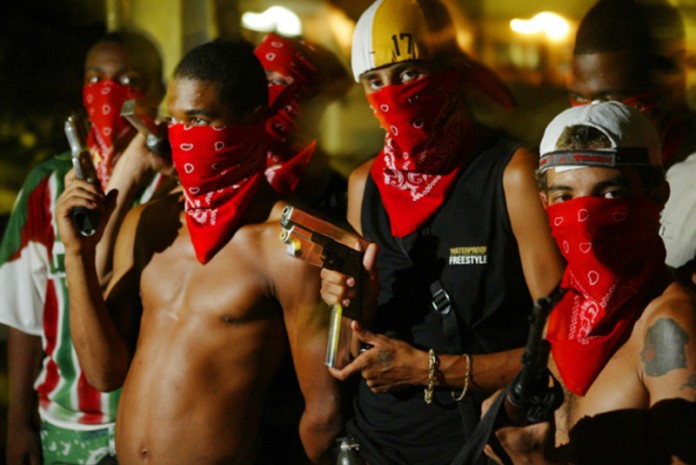By
Ricardo Swire
A Brazil, Bolivia and Peru agreement sanctioned the trilateral police intelligence center that specifically focuses on drug trafficking in the three countries. Brazil shares extended unguarded borders with Bolivia, Colombia and Peru. Together the trio produce virtually all the global cocaine supply.
Over a short period Bolivia has ascended the interregional drugs trade’s ladder of importance. Brazil, classified second largest international cocaine consumer, is main transshipment country for product traveling to Africa, Asia and Europe.
Intelligence data suggests two Brazilian criminal syndicates, the Red Command and Primeiro Comando da Capital (PCC), have expanded to Bolivia. Especially along the northwestern border with Brazil. Red Command, headquartered in Rio de Janeiro, has extensions in Sao Paulo and neighboring Paraguay. PCC is Brazil’s biggest criminal outfit, attracting thirteen thousand followers. The gang operates from within the São Paulo state penitentiary system, utilizing mobile phones and a network of loyal inmates’ wives and fiancées, lawyers and corrupt officials.
The Bolivia spread is attributed to a battle for Brazil’s drugs market monopoly. Brazilians favorite recreational pharmaceutical is a crack cocaine derivative called “Basuco,” produced mainly in Bolivia. PCC and Red Command’s territorial penetration is a push to eliminate Bolivian “middlemen” and increase profit margins. A January 2015 multi-national probe zoomed in on one criminal syndicate comprised of Bolivian, Colombian and Spanish entities based in Brazilian city Londrina. As a result in June 2016 Brazilian and Bolivian Federal Police counter-narcotics officers teamed up to conduct “Operation Quijarro.”
The joint effort stopped three tons of cocaine worth US$10 million. Consignments were smuggled in trucks, retrofitted with secret compartments, traveling thru the Bolivian inland river port city Quijarro that borders Mato Grosso do Sul in Brazil. Later that year an intense shootout, between two Brazilians and Bolivian National Police Corps officers, signaled arrival of Red Command in Bolivia. Acting on intelligence law enforcers, stationed in eastern Bolivia, intercepted the two Brazilian traffickers as they loaded four hundred kilos of cocaine aboard a plane parked on a secret tarmac.
On April 24, 2017 approximately sixty PCC gunmen robbed US$1.3 million from an armored vehicle in Cuidad Del Este, Paraguay’s second largest city on the Parana River. The PCC attackers’ main target was local branch of Prosegur Compañía de Seguridad SA, a private multinational security company headquartered in Madrid, Spain. In the three hour incursion PCC members, armed with assault rifles, used explosives to open the cash storage facility’s vault. Snipers provided cover fire for the robbers’ escape. Ten vehicles set ablaze as additional distractions.
Five PCC gunmen were later caught in Itaipulandia, Brazil’s southern region, fifty kilometers north of the million dollar robbery and raid in Cuidad Del Este. The others escaped aboard a motorboat via the Parana River. On April 25, 2017 three Red Command affiliates were detained in Cobija, a Bolivian border city. One Brazilian detainee wanted for drugs trafficking and stealing two planes from Argentina, a third aircraft from Paraguay. Ciudad Del Este occupies the “Triple Border” area where Paraguay, Brazil and Argentina overlap. There is empirical evidence of illegally imported electronics, drugs and guns routinely transported across the permeable borders.



No Comments Yet!
You can be first to comment this post!